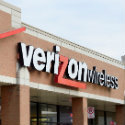Verizon Taps NFL for Help With 5G Innovation
Verizon and the NFL launch a new 'innovation partnership' geared toward creating new 5G products and services for football fans. But the lack of details around the effort is telling.

Verizon announced a new, two-year "innovation partnership" with the NFL to develop products and services that use 5G. The announcement essentially expands a long-running teaming between the nation's largest wireless provider and the nation's most popular sporting league -- but the details of exactly what the effort will focus on remain unclear at best.
The new partnership coincides with the NFL's annual league meeting this week, where team owners will discuss everything from how to use instant replays to the rules around onside kicks.
NFL Commissioner Roger Goodell and Verizon CEO Hans Vestberg touted their new partnership as a step forward for both entities: "If you deliver the right experience for our fans, the revenue will follow," Goodell told Bloomberg. "To us, it's more important to create those experiences, use the technology, use the innovation, create those opportunities for fans to engage with our game in different ways."
Importantly, Verizon and the NFL did not attach a monetary value to their new partnership around 5G, nor did they provide much specificity around exactly what they plan to do. Here are a few topics the operator and the league mentioned as falling under their new 5G teaming:
NFL apps will use 5G to provide advances in utility, points of interest, wayfinding and video functionalities. A Verizon spokesperson wasn't immediately able to explain exactly what that all means, but presumably it will give the NFL's VIPs additional features and services as they travel around stadiums. The Verizon representative added that the offerings would first launch in a few stadiums and then, eventually, expand to all NFL stadiums, presumably as 5G equipment is added to stadiums around the country.
Verizon will create a "5G mobile gaming challenge" that likely will reward mobile game developers who create new games that leverage 5G technology. The games will be distributed through Verizon Media's Yahoo! Sports brand. Verizon didn't provide any details about the challenge, but it could stem from the $1 million seed fund Verizon announced in January to fund new 5G services and applications.
The NFL will offer "live volumetric viewing" during games, which likely will record play from a variety of angles in the stadium and then allow 5G viewers either in the stadium or at home to access those video feeds or instant replays.
Verizon will offer "unique experiences" for customers enrolled its Verizon Up customer rewards program at NFL events including the Super Bowl, Pro Bowl and the NFL Draft. Again, a Verizon representative didn't immediately provide details.
And Verizon and the NFL promised augmented-reality services, potentially allowing 5G phone users to hold up their phone up to a game to see related information like stats for players on the field.
The impetus behind Verizon's announcement with the NFL is clear: The operator wants to enlist top-tier brands and engineering teams to flesh out all of the opportunities around 5G that it possibly can. Indeed, Verizon clearly has been thinking about the 5G-sports connection outside of its new NFL deal: For example, Verizon's Nicki Palmer, the operator's chief network officer and the executive now in charge of finding revenue-producing use cases for 5G, rattled off more than a dozen possible sports-focused 5G services when questioned on the topic in a recent interview with Light Reading. Further, Verizon has a long history with the NFL, having partnered with the organization at the outset of the 4G era to broadcast NFL games to 4G phones.
And the reasoning behind Verizon's focus on the NFL is also not a surprise: According to research commissioned by Amdocs, 63% of network operators plan to offer augmented and virtual reality services over 5G in support of sporting events, making such events a springboard for most consumers' first 5G interactions.
But the lack of details in the new partnership between Verizon and the NFL is also telling. That the entities are phrasing it as "innovation partnership" reflects the fact that 5G remains at a very early stage in its development, and no one is quite sure exactly how the technology might be put to use in a major way.
While this uncertainty likely worries investors, those in the industry continue to point out that today's 4G blockbusters like Uber and Pokemon Go were nowhere to be found at the dawn of LTE.
— Mike Dano, Editorial Director, 5G & Mobile Strategies, Light Reading | @mikeddano
About the Author(s)
You May Also Like












